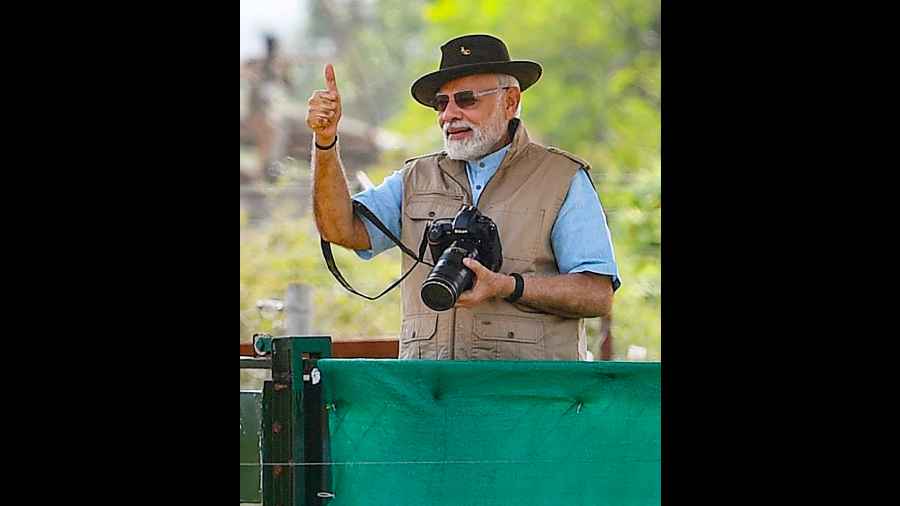Prime Minister Narendra Modi's birthday is all the more special today. Eight cheetahs who have traversed all the way from Namibia to Madhya Pradesh, were released at the Kuno National Sanctuary by Modi himself.
And the auspicious occasion happened 74 years after the animal was declared extinct in India.
Readers would be inquisitive on why the central Indian state was chosen for their home. Here's why...
Naturally standing out
Madhya Pradesh, with a wide expanse of forest that spreads over one-third of the state was the natural choice by the team working on the translocation of the majestic beasts from Africa to Inda. The sustained development projects to take care of the state’s flora and fauna have had MP with the highest number of tigers, especially at a time when their numbers are dwindling across the nation. The state is far ahead of others when it comes to conservation of animals like alligators, leopards, and vultures.

The Kuno National Park Sourced by the correspondent
Survey gets it right
The move comes 74 years after the animal was wiped out in India. Officially, they were declared extinct in the country in 1952.
Talks had been on since 2009 with global cheetah experts over translocation.
In 2010, the Wild Life Institute of India surveyed potential areas for their restoration in India. Kuno Sanctuary of Madhya Pradesh, rechristened Kuno National Park, was found to be the most suitable among the 10 parks that were recceed.
According to the survey, 750 square km of Kuno National Park was favourable to be home to about two dozen cheetahs.
Once the park was closed in on, a team of MP government forest officials led by PCCF (Wildlife) J S Chouhan went camping in South Africa and Namibia, earlier this year. Following this, a detailed report was submitted to the state government.
Did you know?
MP was the first state to implement the Wildlife Protection Act, 1972. The state implemented the law on 25 January 1973.
In the post-independence era, the state enacted the Madhya Pradesh National Park Act in 1955, later the Wildlife (Protection) Act superseded the above act.
As per the provisions of the Wildlife (Protection) Act, 1972, the state of Madhya Pradesh has notified 10 national parks and 25 wildlife sanctuaries.
Currently, 6 Tiger Reserves exist in Madhya Pradesh - Kanha, Bandhavgarh, Sanjay Tiger Reserve, Panna, Satpura and Pench Tiger Reserve.
At present, Madhya Pradesh has the highest number of tigers at 526.
MP forests are home to colourful butterflies too. In the Ratapani Wildlife Sanctuary, some time ago, a team of experts, on foot, discovered more than 100 species of rare butterflies.












